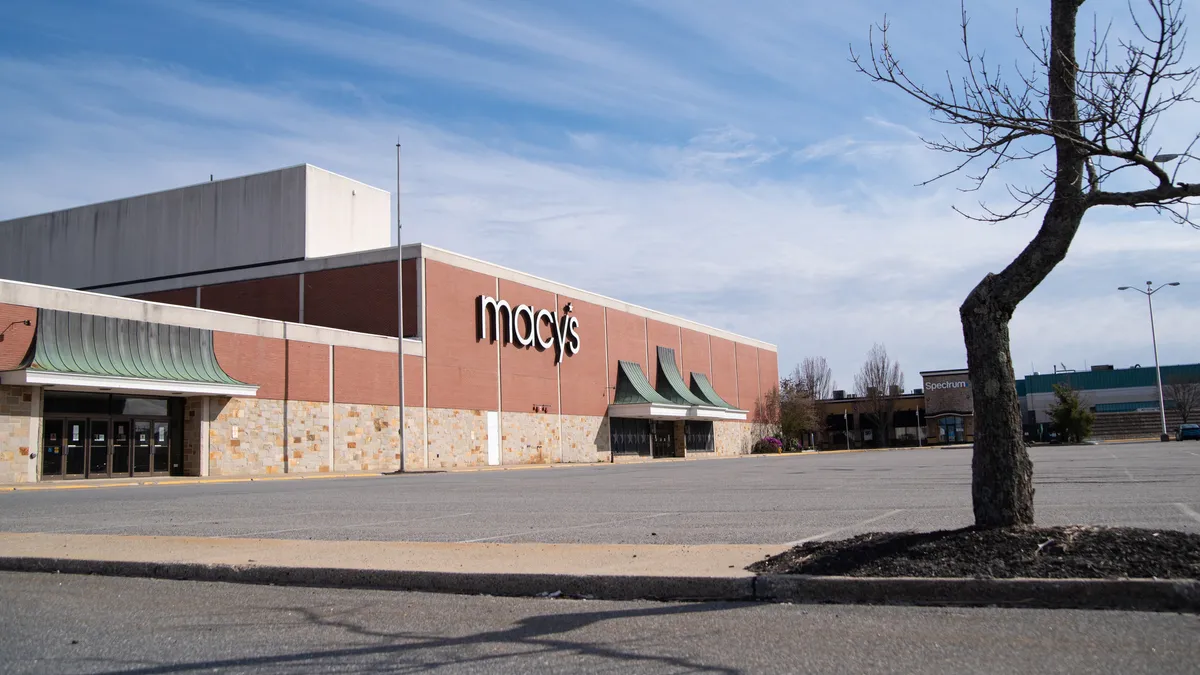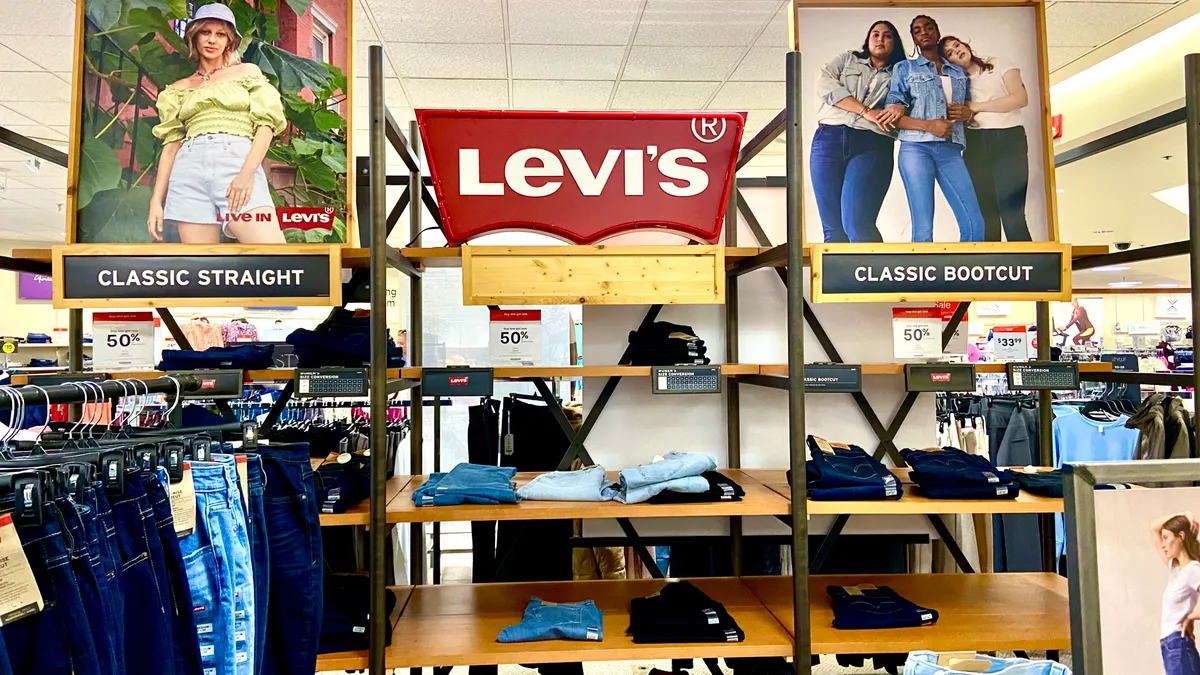More retailers could end up in the coffers of their mall landlords if a bill introduced in the U.S. House of Representatives last month gains any traction. Proposed changes to the idiosyncratic rules governing publicly traded real estate investment trusts (REITs), which have bipartisan support, are being touted as good for retailers, though so far the backers are mostly landlords and their industry groups.
The spare text of the legislation belies how radically it would change REIT tax rules. Those are already complex and entail a host of limitations about their operations, though in return is a nice trade-off: REITs are also largely tax-exempt. If a REIT runs afoul of the rules, it falls out of "REIT status," and may be liable for a hefty corporate income tax bill.
The strange structure with its byzantine rules — devised six decades ago to open real estate investment opportunities for ordinary investors — is what makes a REIT, like a bond, an attractive investment for retirees and others who want to put their money into something less risky than the stock market.
Scott Silver, an attorney who represents many such investors, warned against pushing the risk retailers and malls are facing onto them.
"We always see this in a down market, that the banks and institutional investors look for ways to transition that risk to more unsuspecting investors and protect themselves," Silver said by phone. "So anytime in times of trouble, when you loosen the restrictions to create greater exposure on mom and pop, you're letting Wall Street put the risk on Main Street. You still extend the life of a mall, but it won't change the end result that the businesses go under, in this game of hot potato. You put [the risk] onto 80-year-old Ethel, who just wanted to buy a bond paying 5%."
There have been other changes to the REIT tax code over the past 60 years. The current proposed bill would leave some strict rules intact — including the requirement that at least 75% of a REIT's gross income come from real estate-related activity (like rent) and that only 5% of it can be non-qualifying income (like income generated by a mall-owned retailer).
Still, the changes being considered on Capitol Hill could further the ongoing disruption of the mall's fundamental business model. At its core, that entails filling its space with tenants that come and go as years go by; renewing leases and raising rent, or bringing in new tenants when leases end; all the while collecting cash rent.
"REITs were originally intended to act like a mutual fund for real estate so individual investors could participate in a relatively low-risk but professionally managed, diversified portfolio," Michael Jerbich, president of B. Riley Real Estate, said by email. "In return, REITs benefitted from certain federal tax exemptions. Fundamentally changing the REIT structure to operate more like a taxable corporation makes you wonder whether the government will ultimately seek to limit or roll back those tax benefits. It could also mean shareholders are exposed to greater risk, but often greater risk can provide greater reward."
The proposal
As described in a summary of the bill published when it was introduced in the House last year, as well as a February press release from one of its sponsors, Congressman Brad Schneider (D-Illinois), the bill makes adjustments to a couple of REIT rules, and introduces a new ability not allowed by current law. So far the bill hasn't been introduced in the Senate.
First, the changes. One would allow a REIT to own a 50% stake in a tenant, up from 10% now. According to sources, that raises a slew of questions including how it affects the leases of owned versus non-owned tenants within a mall, what it means for retailers in one mall that are owned by another and what it means for investors.
Another change would expand the amount of space a REIT is allowed to lease to its own taxable subsidiary. In the case of mall REITs Simon Property Group and/or Brookfield Property Partners, such subsidiaries include J.C. Penney (acquired by both in partnership late last year) and Aeropostale (also acquired together, five years ago) plus Lucky Brand, Brooks Brothers and Forever 21 (all acquired by Simon last year). J.C. Penney, with vast stores in nearly 700 locations, is probably already eating up quite a bit of the allowed space at Simon and Brookfield malls, experts say.
The existing limit helps ensure that lease terms like rent genuinely reflect the market, according to Mitch Rosen, senior director of real estate at Yieldstreet, an investment platform focused on generating passive income streams. Otherwise, a REIT could give a break to its own tenants, or, worse, charge them above-market rents. The latter is especially problematic because it could suggest to investors that the mall is more attractive to retailers or perhaps thriving more than it actually is, he said.
More generally, malls getting into retail, a business that by Simon CEO David Simon's own admission is more volatile than real estate, introduces a higher level of risk than is typical for a REIT.
The potential consequences of malls owning a greater interest in their retail tenants may need a closer look, Rosen said, noting that retailers grapple with a lot of thorny issues — supply chain interruptions, working capital needs, sometimes risky debt levels, a large employee base, a need for inventory up front, and seasonality that sends demand and revenue up and down throughout the year.
"These are all unique challenges that retailers face that a mall owner historically has not," he said. "So that's what I think about as an investor — if I'm investing in a real estate owner, I'm potentially also investing in a portfolio of retail tenants, companies that sell clothes or housewares or candles whatever they may be. And those are very different businesses."
A new twist
One element of the proposal is entirely new, and some analysts see it as a drastic change.
Along with the expansions of existing rules, the proposal would allow a REIT to accept equity in a tenant's business as rent in lieu of cash, something not allowed under current "related party rent rules," according to an email from Schneider's office.
This "will enable REITs to support struggling tenants by investing in them," Stanley Shashoua, who is chief investment officer at Simon Property Group as well as J.C. Penney's interim CEO, said by email, noting that's become especially important in the pandemic era. It would also allow malls to invest in emerging retailers, like direct-to-consumer brands new to brick-and-mortar retail, Shashoua also said.
This provision caught many experts by surprise.
"The mantra of the mall owners has been 'we can always replace a weak tenant with a higher quality tenant,'" Yieldstreet's Rosen said. "What this is saying is that whole argument, that has been made for years, is replaced with the idea that they would rather keep a tenant, even one not paying rent. And in lieu of paying rent, would [accept a stake in the business]. That's a wholesale paradigm shift of what we've heard for the last 15 years if not longer, and that's concerning to me as an investor."
Good for retailers?
These changes would apply to any REIT, including office REITs, industrial REITs and all sorts of other commercial property REITs. But the bill's name, the "Retail Revitalization Act," suggests that it was written with retail REITs in mind.
"The COVID-19 pandemic has decimated the retail sector, resulting in lost jobs and shuttered doors," Schneider said in a statement. "Retailers across the county are already facing bankruptcy, liquidation or large-scale job losses. Allowing REIT landlords to infuse more capital into their retail tenants will help offset the retail sector’s devastating losses caused by the pandemic and save jobs."
If retailers agree with that, they're not saying. The Retail Industry Leaders Association declined to comment on the claim or the substance of the bill. The National Retail Federation "is still reviewing the legislation and has not taken a position," a spokesperson said by email.
Support for the bill comes from a "broad spectrum of constituents, REITs, and real estate companies, as well as the organizations within the labor community," a Schneider spokesperson said by email. Retailers so far are not on that spectrum, according to the Congressman's press release and subsequent communications with his office.
The bill's champions hail mostly from the real estate industry. Representatives from both Simon and Brookfield are quoted in Schneider's press release saying the changes are good for their tenants and would save jobs. Nareit, (which represents REITs) and the Real Estate Roundtable (a nonprofit that represents real estate interests in Washington) communicated with Schneider's office regarding the bill, representatives from those groups said. The International Council of Shopping Centers, (a trade association whose members are shopping centers and others in the retail real estate industry), didn't have input on the bill, but supports it, according to ICSC Vice President of Tax Policy Phillips Hinch.
The rationale
A frequent reason given by lawmakers and the mall executives who support this bill is that it will save jobs in an industry that has been hard hit by the pandemic.
Most of the acquisitions made by Simon and Brookfield were in 2020, and all were via bankruptcy. But all those retailers were also struggling well before the pandemic. Whether a different acquirer would have closed more stores or whether the retailers would have liquidated if the mall REITs hadn't stepped in is hard to know. But it's likely that more of those retailers' stores are now likely to stay open, at least for a time and at least in those two malls.
That goes against the tide. In general, footfall to malls has been dwindling for decades, and in recent years that has led several retailers to reduce the size of their footprints, especially at enclosed malls. Gap Inc. CEO Art Peck a few years ago said that traffic had declined so precipitously that they were no longer worth the steep rent. Retailers as diverse as Gap and Macy's have turned instead to cheaper locations in open-air centers.
Green Street analysts last year warned that the pandemic would only hasten the ongoing departure of mall tenants, including anchors. Three years ago, David Simon himself seemed unfazed by that, telling analysts that anchors needed to shrink or even be let go. Since the pandemic, much power has swung to retail tenants, which have successfully negotiated lower rents and shorter leases, further destabilizing mall landlords.
Another case being made by the bill's proponents is that the REIT changes would serve as a sort of side-door pandemic relief for retailers. Congress passed a series of relief bills, amounting to trillions of dollars, that have propped up both consumers and businesses. But ICSC, for example, sees this REIT proposal, (which unlike most relief measures would be permanent), as another lifeline.
"Congress didn't do much to help your medium and large retailers," Hinch said said by phone. "So you have the [Paycheck Protection Program] loan, that helps small business, but once it goes to the larger size there wasn't a lot that they could take advantage of. So we sort of see this as a business-helping-business provision, that provides a new source of capital to help stabilize the retail environment. And the most impacted businesses have been in malls."
Another rationale
What proponents don't say is how the proposal would help mall REITs themselves, especially traditional, enclosed malls.
Buttressing struggling tenants preserves rent, and keeps stores open and mall space filled. In the case of J.C. Penney or another department store anchor, it also prevents the exodus of inline tenants, thanks to common clauses allowing them to rip up their leases should an anchor close. As Yieldstreet's Rosen notes, in a different era, a mall would simply replace a bankrupt or shrinking retailer with a healthy, growing one. But in recent years, before the pandemic, a host of retailers — including Gap, Old Navy, Victoria's Secret, Macy's and Nordstrom, among many others — have shrunk their footprints or moved many of their locations away from the mall.
"The Simons and the Brookfields of the world are going to share in the profits, if they can make these retail stores profitable. That's what they're hoping for."

Ron Friedman
National Leader of Retail and Consumer Products, Marcum
"It's really obvious to me that all malls have been in trouble. If they start losing these tenants because of COVID, and they can't afford the rents, they need to keep them alive, so that they can have another day in the world of retail," Ron Friedman, national leader of retail and consumer products at accountant and advisory firm Marcum, said by video conference. "The Simons and the Brookfields of the world are going to share in the profits, if they can make these retail stores profitable. That's what they're hoping for. If they're relying on just rents to support them, they're going to have problems keeping these stores open because they can't afford the rents. Their exposure of losing tenants will cause them to lose a lot of money. They can't afford that risk."
But expanding REIT ownership of retail tenants is hampered by the law. Right now, the consequences to mall REITs that bump up against the maximums allowed by law are severe, according to Kurt Koegl, a partner at Marcum, also speaking by video conference.
"The REIT is such a tax-advantaged vehicle, and if you trip over one of these highly technical, highly mechanical regulations, the penalty on that is tremendous," he said. "It could be a $50,000 penalty, it could be a 100% prohibited transaction tax, which means you basically take all your profits and pay them to the IRS, or the worst case scenario is you lose your REIT status. And in that case you take something that was a non-taxable flowthrough vehicle, and now you're subject to 21% federal tax plus applicable state taxes. So for a public mall REIT, the impact on [the internal rate of return] is tremendous."
It's not clear that all malls are on board with these tax changes. They appear to most directly benefit REITs with significant ownership of retailers. Currently, only Simon Property Group and Brookfield Property Partners have such stakes. Other major publicly traded mall REITs — including CBL Properties, Macerich, PREIT and Tanger Outlets — haven't publicly supported the bill, and none of them responded to requests for comment on it.
David Simon has been lobbying for the change for months. He said so last August, telling analysts it would free Simon up to acquire more retailers without having to "de-REIT."
That's a move that Brookfield last month said it would like to make. [UPDATE: On April 1, Brookfield announced the completion of its de-REIT agreement, effectively nullifying any impact the proposed bill would have on its operations or tax obligations, experts said. Brookfield didn't immediately return a request for comment on whether it still supports the bill.]
De-REITing would provide the leeway to make more such acquisitions without touching any REIT rules. But, as David Simon also noted, that would mean giving up the REIT's exemption from corporate income tax.
There is a case for why malls (or certain malls) would like to change the rules. Less clear is how much of a difference it would make in the long run, to them or the retailers operating in them. If they are indeed met, the stated goals of the proposed changes — to save retail and retail jobs — would be met only fleetingly, according to Nick Egelanian, president of retail development firm SiteWorks.
"The problem is that the fundamentals of why a mall was built in the 60s, 70s and 80s no longer work," he said by phone. "Tinkering with the rules allows them a little greater flexibility in buying tenants and owning tenants. But none of this changes what's wrong with the industry, which is that department stores, even fashion department stores, no longer can draw enough traffic to support the tenants that are in the mall. So it's temporary. Nothing's going to stop this. Nothing. They could change every rule. The problem isn't the rules. The problem is the risk."























